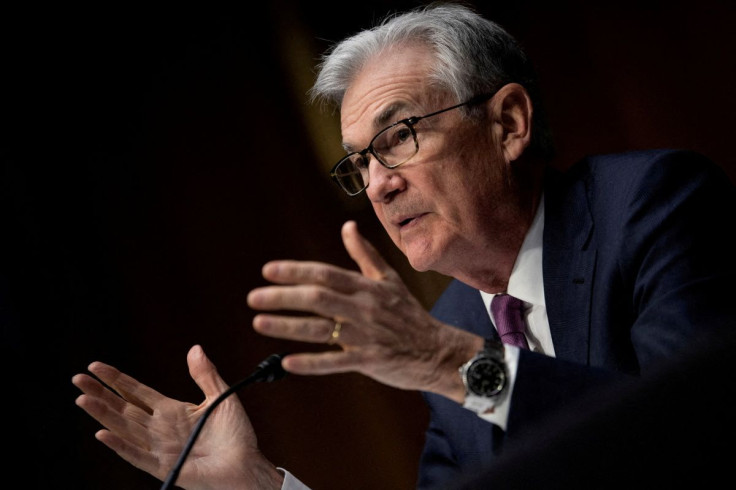Fed Seen Jacking Interest Rates Further As U.S. Inflation Soars

Investors boosted bets on Wednesday the U.S. Federal Reserve could deliver an even bigger interest-rate hike at its policy meeting later this month after a worse-than-expected inflation report showed price pressures, already running at a 40-year high, accelerating further.
A bevy of central bankers over the past couple of weeks have already signaled support for a 75 basis point rate increase at their upcoming policy meeting on July 26-27, following a similar-size hike at their last meeting in June.
The consumer price index (CPI) rose 9.1% last month from a year earlier, data from the Labor Department showed on Wednesday, driven by rising costs for gas, food and rent. [nL1N2YT184]
As a result, traders of futures tied to the Fed's policy rate swiftly priced almost even odds of an super-sized 100-basis-point rise at the coming meeting, according to an analysis of fed funds futures contracts compiled by the CME Group.
That was up from about a one-in-nine chance seen before the report, which also showed underlying inflation slowing.
Even the slight easing of so-called core inflation, which excludes more volatile food and energy prices, to 5.9% in the 12 months through June from 6.0% in May, was less than economists expected. More worryingly, on a monthly basis, core CPI climbed 0.7% after advancing 0.6% in May, to its highest reading in year.
Neither gauge offers comfortable reading for Fed Chair Jerome Powell, who has placed a premium on so-called headline inflation slowing given the outsized impact the cost of gas and food has on typical American households.
Those price pressures are stoking concern that if the Fed does not begin to get inflation in check soon, business and consumer expectations of a torrid rate of future price increases could become entrenched, forcing the Fed to move even more aggressively.
"It really pushes the Fed even further into the corner they've been operating in. They need to raise rates quickly and they need to raise rates by large amounts," said Chris Zaccarelli, chief investment officer at Independent Advisor Alliance. "Unfortunately we were looking for good news and this is not good news."
On Monday, Atlanta Fed President Raphael Bostic said his baseline view was that he did not expect the central bank to have to raise interest rates by 100 basis points. However, if inflation or longer-term inflation expectations started to move further away from the Fed's 2% goal, he said, "those would be sources of concern that would cause me to contemplate being even more aggressive than what I have in my head today."
The persistence of such high inflation and the strength of the central bank's moves needed to quash it are once again sharpening fears a recession is on the horizon.
Fed research published this week based on modeling of bond-market yields puts the chance of a recession next year at about 35% if the Fed sticks to its expected baseline rate-hike path, but at 60% if the Fed removes accommodation faster.
"With supply conditions showing little sign of improvement the onus is the on the Fed to hit the brakes via higher rates to allow demand to better match supply conditions. The recession threat is rising," said James Knightley, chief international economist at ING.
The Fed began tightening policy only in March, and has already raised its benchmark overnight lending rate by 1.5 percentage points. Financial markets now predict that rate will reach the 3.5%-3.75% range by year end, higher than Fed policymakers themselves predicted just three weeks ago.
A very tight labor market has so far withstood those swift rate hikes, with unemployment remaining at 3.6%, near a historic low. However, that is seen as a double-edged sword as it also raises concerns that such competition for labor will eventually have to cool to ease inflation.
© Copyright Thomson Reuters {{Year}}. All rights reserved.





















